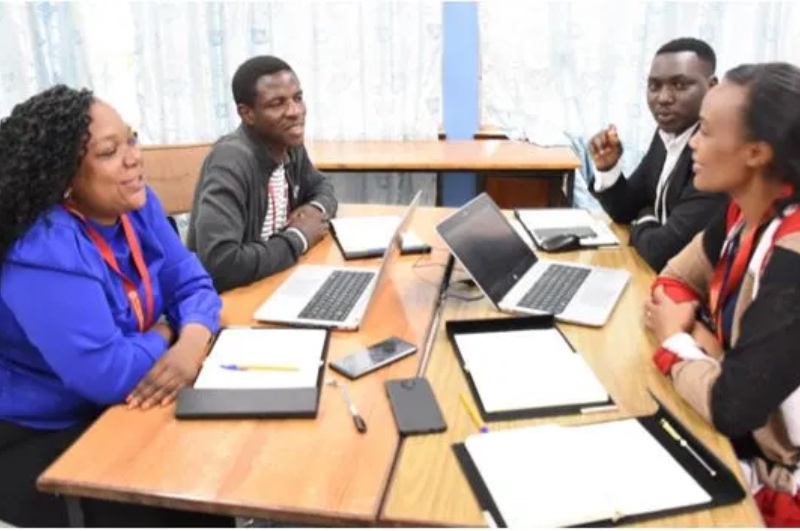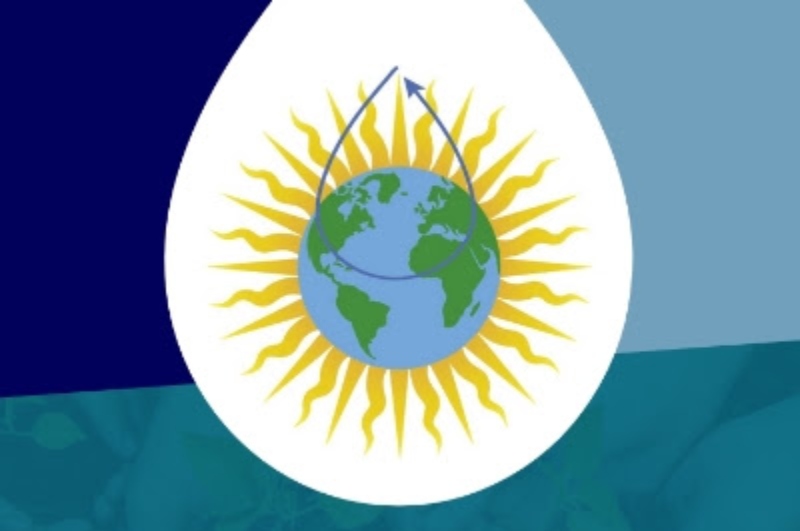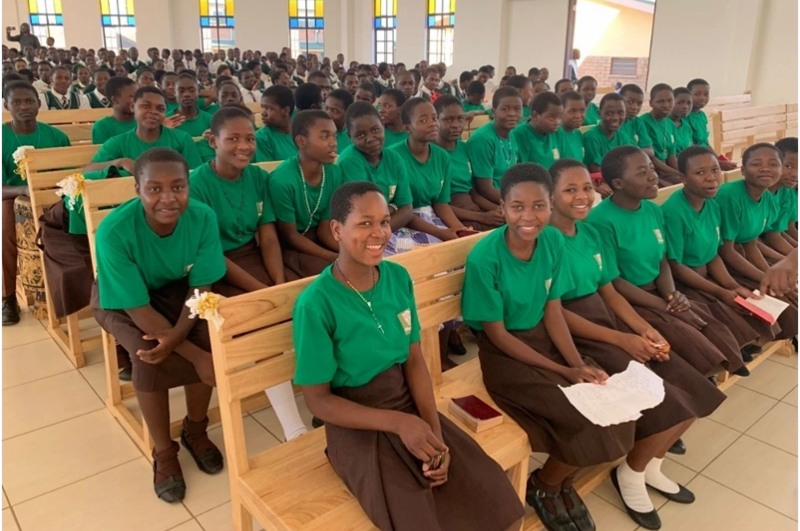


Promoting quality Jesuit education in Africa and Madagascar
On May 14, 2021, over 60 participants joined the launch of the Jesuit Association of Secondary and Basic Education in Africa and Madagascar (JASBEAM).
Fr. Joe Arimoso spearheaded the virtual launch that was done via Zoom at 9:00AM GMT, by welcoming Fr. Agbonkhianmeghe E. Orobator, SJ, the President, of the Jesuit Conference of Africa and Madagascar (JCAM) to give his opening remarks.
The JCAM President begun through a message of gratitude to Fr. Joe Arimoso SJ and the team of Education Delegates past and present, and the Educate Magis team who worked tirelessly for three years to make this moment and this event possible. He also thanked all the participants representing more than fifty primary, basic and secondary schools in the Jesuit Conference of Africa and Madagascar.
He affirmed that the launch was a historic moment in the development of Jesuit education in Africa and Madagascar. “With this launch of JASBEAM, we have an opportunity to develop a new way of collaborating, networking and advancing the mission of education, because we are stronger together. We are creating a new platform that will allow us to learn from one another, initiative joint projects, and support one another.
As Father Adolfo Nicolás, SJ, once said, Jesuit education is a mission “far greater than what any single Jesuit can dream or do; greater than what any group, community or congregation can aim at” (“Depth, Universality, and Learned Ministry”).
I encourage and urge all the Jesuits and collaborators of Jesuit schools in Africa and Madagascar to embrace, support and participate in this new network actively, wholeheartedly and generously”.
JASBEAM started out as JESAMED which was derived from JESAM, which stands for “Jesuit Major Superiors of Africa and Madagascar”. In 2018, JESAM changed to JCAM (Jesuit Conference of Africa and Madagascar). In the same year during the meeting in Lusaka in February, JESAMED changed to JASBEAM. The need to change the name came from the realization that JESAMED did not operate as a network but operated like a group of Education Delegates who looked after their schools independently and the schools did not have any connection with other schools in the Conference.
The goal of JASBEAM is to create a strong network that will enhance collaboration among our Jesuit Schools and to provide quality educational services that allow all our stakeholders to achieve human excellence in the Jesuit educational tradition.
The keynote speaker was the Secretary of Education of the Society of Jesus Fr. José Mesa, SJ. Below is his message.
JASBEAM - A fire that kindles other fires
“It is a time to celebrate and rejoice because our schools in Africa and Madagascar have decided to take an important step of creating the Association of Jesuit Basic and Secondary Education in Africa and Madagascar. A strong regional network is an important development for our schools in this part of the world but also for our Jesuit Global Network of Schools.
We are learning that we are stronger and better when we network at all levels (local, national, regional and global). It allows us to reach new levels of urgency that benefit the service of our mission of justice and reconciliation with God, with humanity, and with creation.
Our schools are challenged by difficult, complex, and evolving problems. Some of them certainly require working in collaboration with others. We know this well from our own history. Early Jesuits discovered that only if they were able to work together and coordinate their efforts, knowledge, and learning, could they offer the kind of quality education that was needed.
Today is even more so, and especially in a continent where so many young people, families, and governments put their hope in education to be able to respond to the challenges that you have in the continent, and that we all have in the world. In this sense, Educate Magis offers our schools a great possibility to build a global community where we can share experiences, resources, get inspiration and energy.
I hope you can all take advantage of that and help us to build Educate Magis into a vibrant online community of Jesuit Ignatian educators.
The pandemic has made clear more than ever, not only that as humanity we share a common planet and destiny, but, only when we work together, we can respond to the enormity of our challenges and opportunities. This is why the global citizenship programme that you are beginning in collaboration with Educate Magis is so important.
We really need to educate ourselves and the new generations in a new sense of global solidarity and common responsibility that we do not have now. We need to learn to work with others and develop our common responsibility for our common home. As Pope Francis has invited us to do in Laudato Si’ and Fratelli Tutti and more recently in the call for building a new global compact on education that can really offer quality education to all according to current contexts of the world.
This call for a new compact is more urgent in Africa since some of the school systems are so fragile and good education still remains elusive for most children and youth.
Our Jesuit schools should play an important role in making the right to quality education, a reality in Africa and the world.
Fr. General Arturo Sosa calls to practice the audacity of the impossible and here is a very necessary and important step to work together.
Other Jesuit regional networks have found new apostolic energy in the activities available in this collaboration.
I assure you that this will happen to you too.
And this new network will benefit our schools in Africa and Madagascar and also empower us globally.
JASBEAM begins a very exciting moment for our global network. We had the JESEDU Congress in 2017 in Rio de Janeiro. Some of you were there, and the delegates agreed on a common agenda for our schools within 13 important actions that respond to our present challenges.
Fr. General Arturo Sosa has ratified them and encouraged Major Superiors and educational delegates to implement them in our schools.
More recently ICAJE - the International Commission of the apostolate of Jesuit Education offered a new document to living tradition that renews the call for an ongoing exercise of discernment in our schools so that we can recognise the new realities of the world and respond to them. This document also presents 10 global identifiers that today define a Jesuit school.
I encourage you to accept the challenge of this document in the context of the Universal Apostolic Preferences and the Ignatian Year that is beginning in a few days.
JASBEAM can do a lot to help the schools to know this document, use it, and implement it. It will make a big impact on the quality of our apostolate and it will help us to see all things new in Christ as the Ignatian Year invites us.
The secretariat has also created an integrated perspective infographic to help us see how all these things are connected and invited us to walk in the same direction. Since the wheel and our history do not stop, Jesuit education cannot stop either. We have initiated a new cycle of global gatherings. Working as a global network at the service of the mission.
We are preparing now the second colloquium (JESEDU Global) as a follow-up to the one we had in Boston in 2012. Your participation is very important for making our network a truly global network at the service of the mission. Some of you will join the colloquium as registered participants, the others can follow it at Educate Magis website where all materials, videos, and keynote presentations will be available.
May God bless you all and bless JASBEAM so that we can rise to the occasion of Jesuit Education in Africa and Madagascar and that we can truly offer a quality education in the Jesuit tradition”.
Related Articles
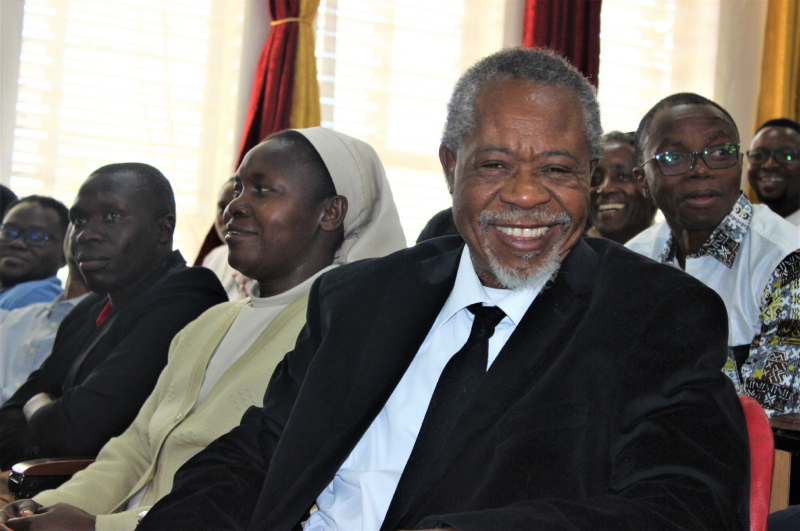
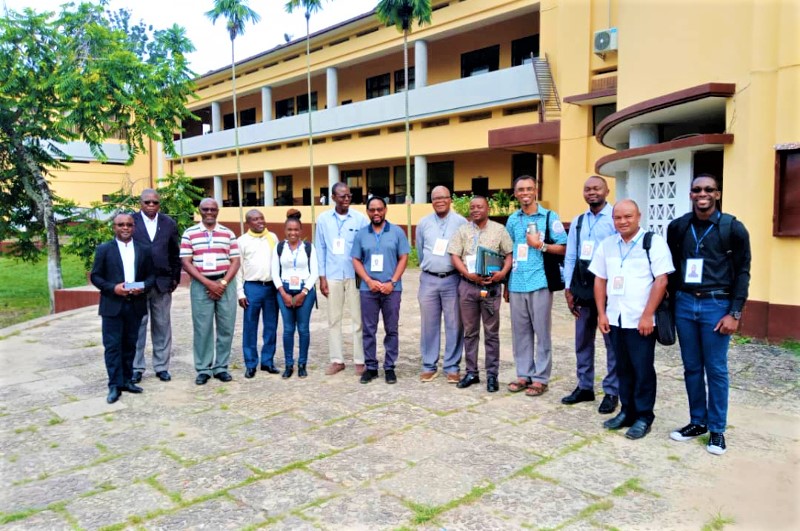

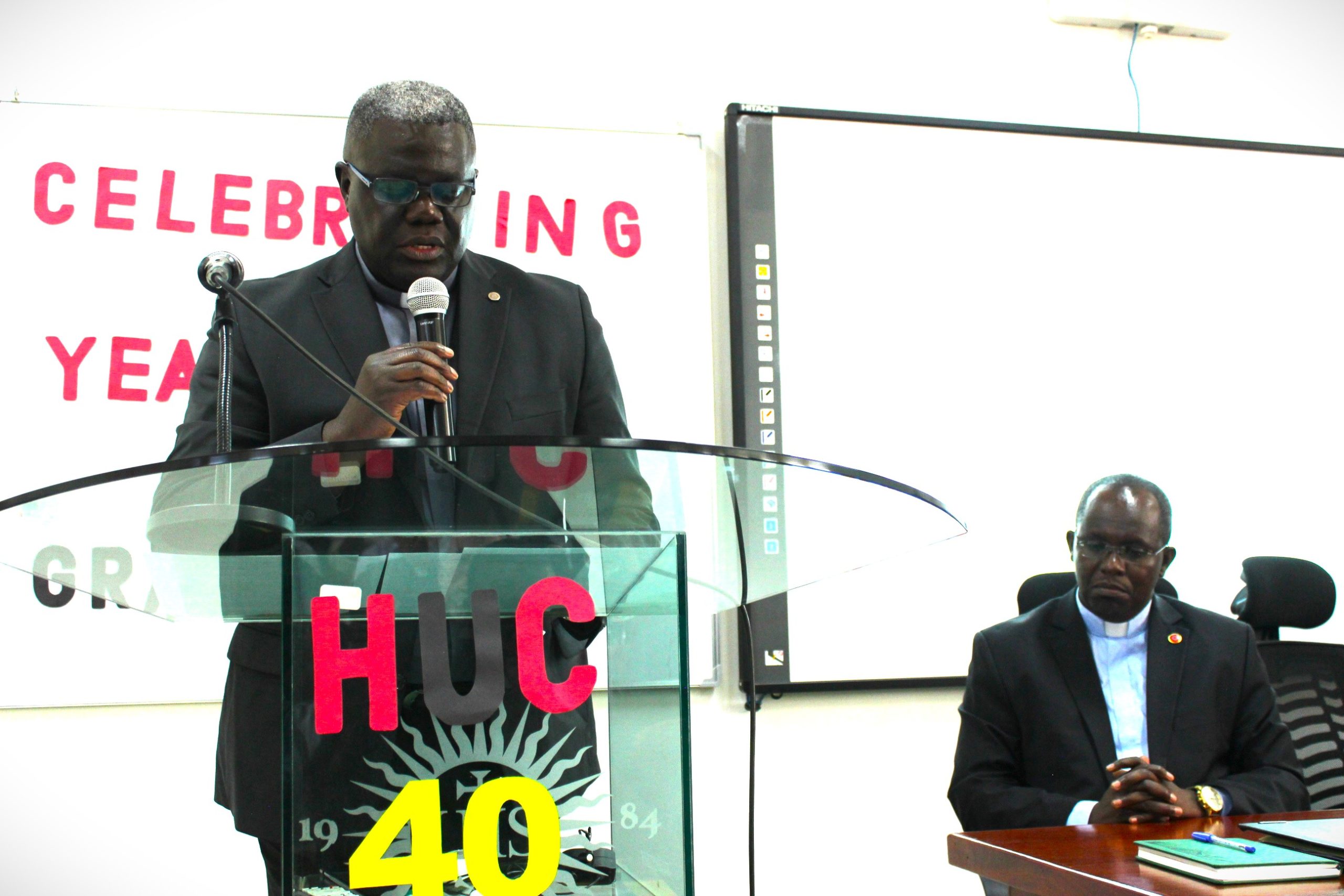
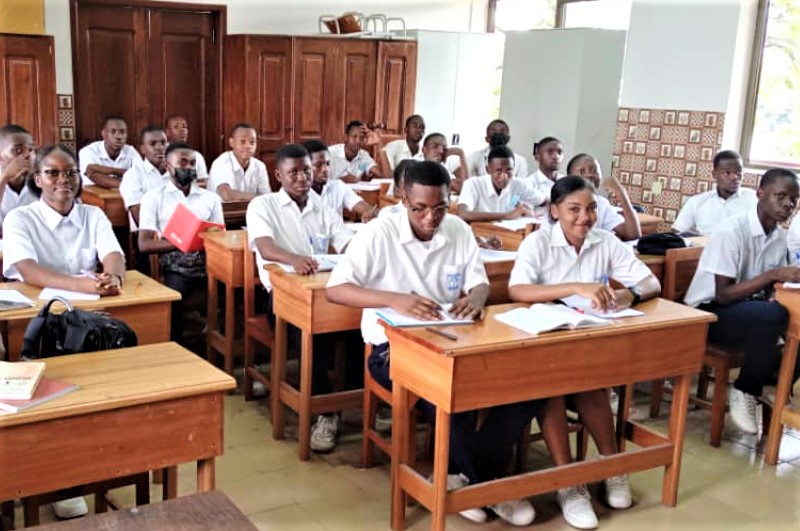
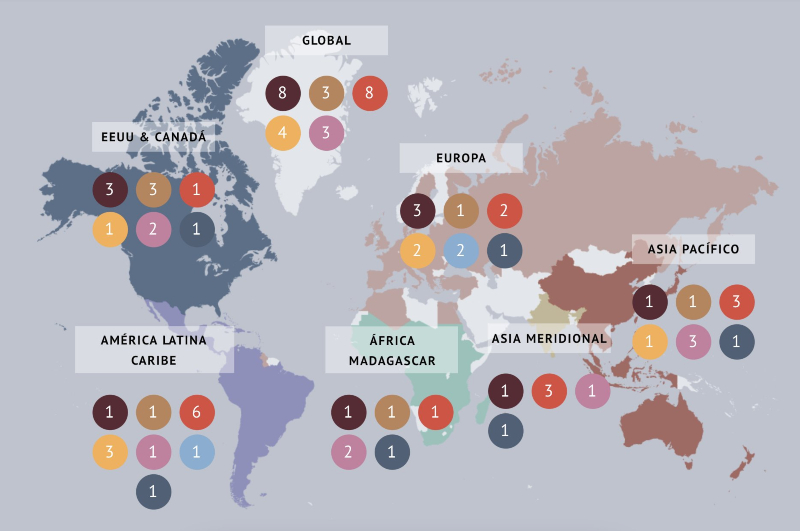
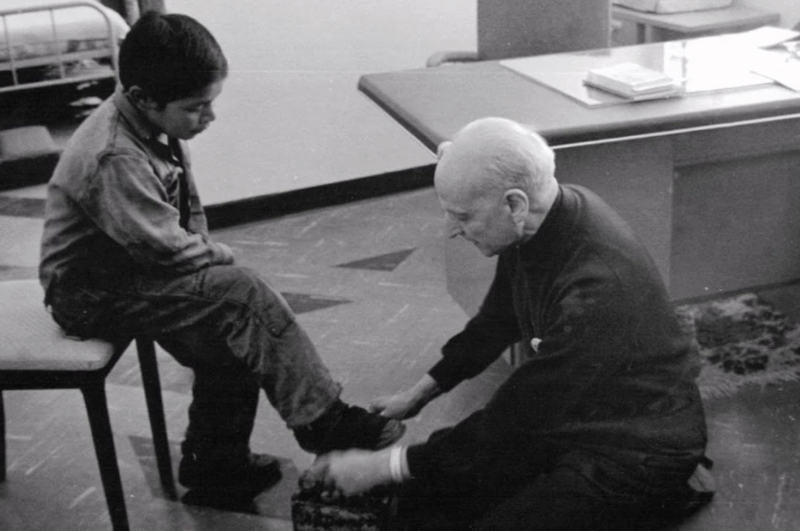
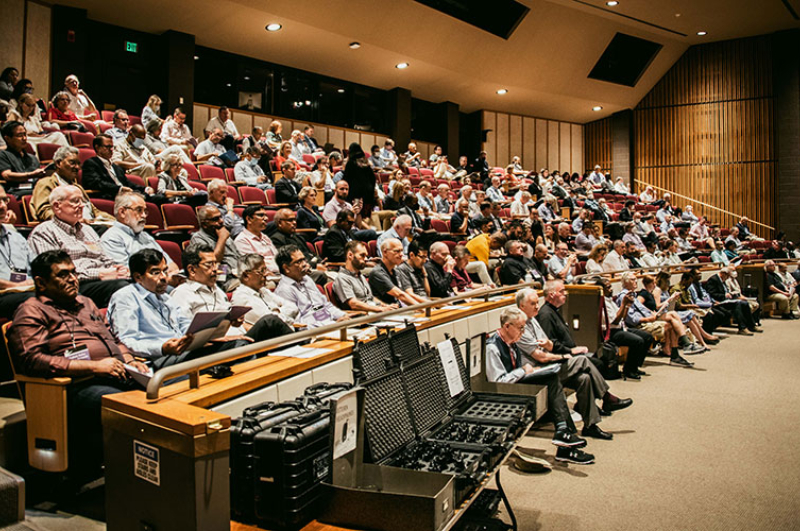
Select Payment Method
Pay by bank transfer
If you wish to make a donation by direct bank transfer please contact Fr Paul Hamill SJ treasurer@jesuits.africa. Fr Paul will get in touch with you about the best method of transfer for you and share account details with you. Donations can be one-off gifts or of any frequency; for example, you might wish to become a regular monthly donor of small amounts; that sort of reliable income can allow for very welcome forward planning in the development of the Society’s works in Africa and Madagascar.
Often it is easier to send a donation to an office within your own country and Fr Paul can advise on how that might be done. In some countries this kind of giving can also be recognised for tax relief and the necessary receipts will be issued.


